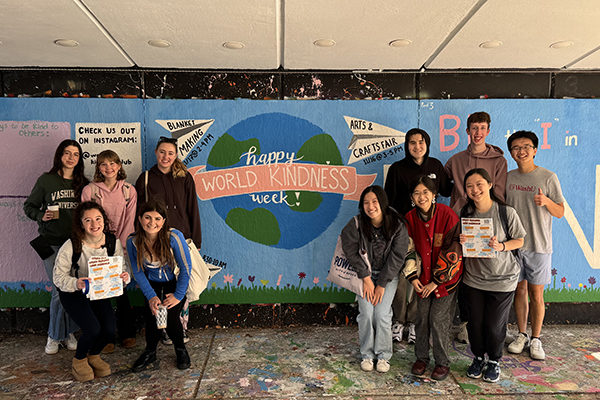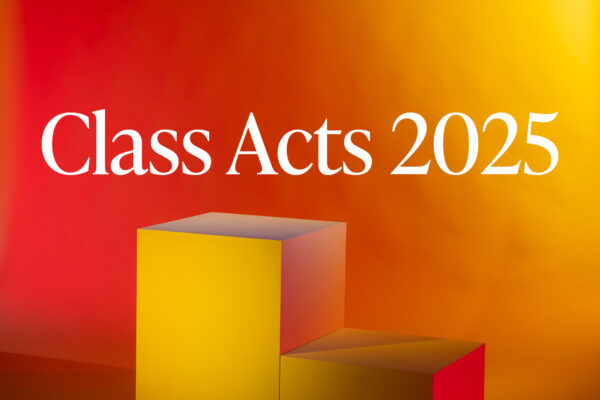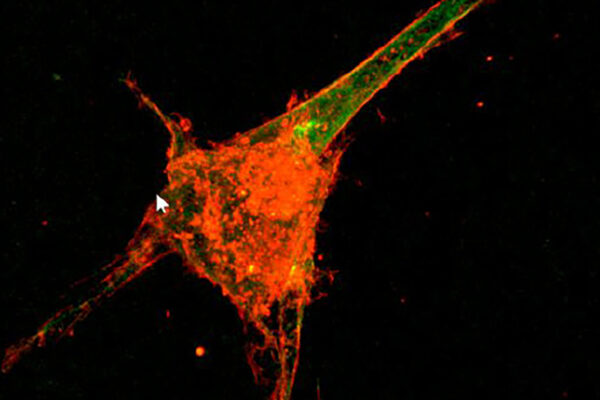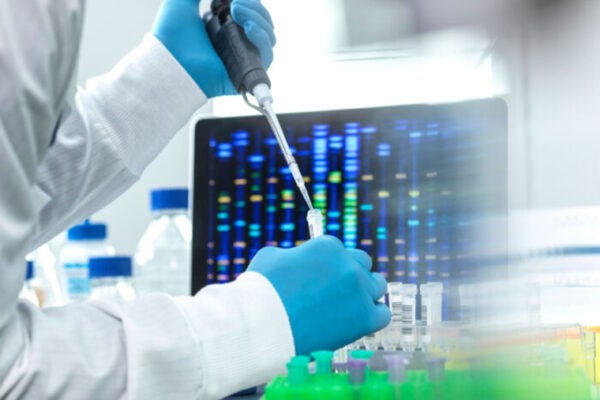Justin Xu’s interest in the medical field began during a normal occurrence in every child’s life: a trip to the pediatrician. After collecting “popsicle stick” tongue depressors during each visit, he claimed it as his dream job.
“I’ve always wanted to be a physician,” Xu said. “In high school, that dream transitioned to being an oncologist or a doctor who specializes in the diagnosis and treatment of cancer. While in college, I realized that in order to explore these fields more, I had to study biology.”
Xu’s dedication to excelling in the classroom is matched by his commitment to serving those who are often overlooked and underserved. Following graduation, Xu plans to pair his community work with biomedical research in medical school at the Saint Louis University School of Medicine.
Here, Xu reflects on impactful coursework in Arts & Sciences and his leadership in community service efforts on campus and beyond.
What class had the most impact on you at WashU?
I took a course called ‘Community Psychology,’ taught by Seanna Leath in Arts & Sciences, which was completely different from the other courses I’ve taken. It was related to community-based service work and community-based initiatives. One of the central theories is leading and developing initiatives hand in hand with the community and incorporating their voices at all stages of the process.
I got to experience that through a semester-long project where a team of us developed a mock grant to identify health issues in St. Louis and develop a community-based solution to tackle that. We identified food insecurity in parts of north St. Louis and East St. Louis, Ill. We did research on how community gardens, nutrition education and improvement of infrastructure for neighborhoods can help community members access different grocery stores without having to drive. After that, I worked with Bhagya Kolli, assistant administrator of the East St. Louis Health Department, to help implement these solutions at their community garden by leading service projects and community-centered initiatives.
You have taken the lead in countless service projects. How have you integrated the mindset of community partnership in your volunteer work?
While I was taking the class, I was serving as the community service director for the Congress of the South 40 (the student government for WashU’s residential area). I was in charge of planning community service projects for students living in dorms, the Village or student-owned housing off campus. Taking the ‘Community Psychology’ class really shaped how I viewed planning these community service projects.
When planning service projects, people might often assume they know best for the community they’re trying to help. Like, ‘Let’s do a food drive for them or a blanket-making drive.’ In reality, the people you’re trying to help have real lived experiences, and they’re the experts on the issues that they’re facing.
What draws you to the type of community work you do?
Some of the service work I do is with Health Protection and Education Services in University City. I volunteer there as a medical interpreter for Chinese immigrant patients. I have a personal connection which draws me to serving that group because I was born in China and then emigrated here when I was 5 years old. It was a really unique and powerful experience, having to adjust to a new culture and learn a new language. I saw the difficulties of immigrants in America. Because of the language and culture barrier, they sometimes feel uncertainty with seeing physicians in America. They push their appointments until they’re able to go to China next time, instead of seeing them in America, which can be risky. That experience really drew me toward supporting the immigrant refugee populations at that clinic.
I also have a passion for increasing access to high-quality care and access to more advanced care in medically underserved communities, such as screenings and blood tests for advanced cancers to help identify risk factors early on.



